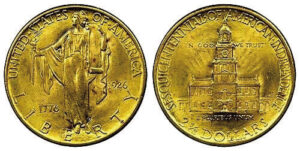Call to piety for each of us
Piety. It isn’t one of the words we use or hear frequently. It feels a little old-fashioned. Sometimes, though, a word we don’t use often is the perfect word to make us stop and really think.
Here’s the definition: the quality of being religious or reverent. Some of the synonyms for piety include devoutness, devotion, piousness, religion, holiness, godliness and saintliness.
Over the years I’ve studied and taught countless times from the book of James. It’s almost always these verses at the start of chapter one that give me the most pause: If anyone thinks he is religious without controlling his tongue, his religion is useless, and he deceives himself. Pure and undefiled religion before God the Father is this: to look after orphans and widows in their distress and to keep oneself unstained from the world (James 1:26-27 CSB).
One of the commentaries I looked at summarized what we find in these verses this way: Your lifestyle will reflect and give evidence of the life of the One who lives within you. In other words, the closer we are to Christ, the more our actions, words and attitudes reflect Him.
Piety is simply the visibility of the God at work in us. In these two verses James gives us three evidences of Christ at work in us.
First, control our tongues. Throughout Scripture the power of our words is emphasized. James covers the topic even more in depth when we get to the first part of chapter two. One of the most powerful statements he makes is found in James 2:9-10: With it (the tongue) we bless our Lord, and with it we curse people who are made in the likeness of God. From the same mouth comes blessing and cursing. My brothers, these things ought not to be.
Our ability to control our speech is most assuredly a mark of maturing in our devotion to the Lord and our pursuit of holiness.
The second indication of our piety is our concern and care for the widows and the orphans.
At the time of James’ writing, the widows and orphans were the most helpless demographic. In our world, we see these groups as well as many others who are voiceless, powerless, helpless and often hopeless. It is the call on every believer to take an active role in caring for the helpless in our communities, in our country and around the world.
We find numerous mentions of this expectation throughout Scripture. Here are few references to consider: Proverbs 14:31, Psalm 140:12, Isaiah 1:17, Luke 6:20-21, 1 John 3:17.
Clearly, there is a serious expectation that as we have been recipients of the lavish love and provision of God, we will use our resources to give lavishly to others.
Finally, we must cling to purity. James tells his readers to remain unstained by the word. Peter gives the same admonition with different words in his first letter: But as he who called you is holy, you also be holy in all your conduct, since it is written, “You shall be holy, for I am holy” (1 Peter 1:15-16).
Choosing holiness in our lives is no small thing for us. Living unstained by the world will not be easy, but it must be the driving force in our lives.
If we are to be “little Christs,” our deepest desire must be to conform to the image of Christ.
Surely this life of piety, of devotion and dedication to the Lord, is the highest pursuit we can endeavor. As the writer of Hebrews challenges: Therefore, since we are surrounded by so great a cloud of witnesses, let us also lay aside every weight, and sin which clings so closely, and let us run with endurance the race that is set before us (Hebrew 12:1).








